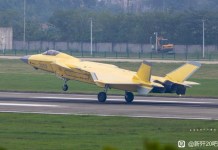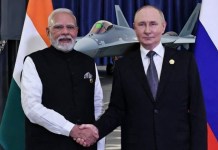Although border tensions and war-like situation between India and China hasn’t diffused yet, however, the joint statement issued this week after the sixth round of Corps commander talks is no less than a light at the end of the tunnel.
India, Pakistan Clash At UNGA – Indian Diplomat Walks Out As Imran Khan Goes All-Out Over Kashmir
The sixth round of Corps Commandor meet took place on Monday lead by Lt. Gen. Harinder Singh, 14 Corps Commander. The Chinese side was led by Maj. Gen. Lin Liu, South Xinjiang military commander. Both the sides agreed to “stop sending more troops to the frontline” and “refrain from unilaterally changing the situation on the ground”.
Joint press release of the 6th round of senior commanders’ meeting between #India and #China. @MEAIndia pic.twitter.com/gz4wrcRAJ5
— India in China (@EOIBeijing) September 22, 2020
According to Chinese state-run tabloid, Global Times (GT), Chinese observers said that they remained cautiously optimistic about the latest development.
“They believe the latest military talks have sent a positive signal, but the two sides still remain divided on many concrete issues and continue to prepare for possible military conflicts with logistical and troop build-up,” said the report.

More such rounds of military talks will take place to reach full disengagement. Before the sixth round of talks, External Affairs Minister S Jaishankar and his Chinese counterpart Wang Yi signed a ‘Five Point’ Agreement in a meeting on September 10 in Moscow.
The joint statement following the meeting said that ministers had a “frank and constructive discussion on the developments in the India-China border areas as well as on India-China relations”.
“The two Ministers agreed that both sides should take guidance from the series of consensus of the leaders on developing India-China relations, including not allowing differences to become disputes,” the joint statement said.
The Chinese tabloid citing Long Xingchun, president of the Chengdu Institute of World Affairs, said that this does not necessarily solve the long-standing border disputes between China and India, but marks a critical step to prevent the current situation from escalating.
“This helps build up mutual trust. If the two sides still deploy troops to the frontline, it means they believe the other side is preparing for war. Now that they decided to stop sending more troops to the frontline, they are sending a signal to each other that they will try to solve the current conflict peacefully,” Long told the tabloid.

Indian and Chinese troops have come face to face several times at the Indo-Sino border. The first violent brawl in Galwan valley in June claimed the lives of 20 Indian and an unconfirmed Chinese troops. Tensions have escalated in the last five months with both the sides preparing for the worst-case scenario by deploying thousands of troops along with heavy weaponry.
Mirroring each other’s deployment, no side is ready to take any chances of leaving them vulnerable. “The long talks also indicated it was still difficult to resolve all the problems, as both sides remain divided on many concrete issues,” Qian Feng, director of the research department at the National Strategy Institute of Tsinghua University in Beijing, told the GT.
Independent experts talking to the EurAsian Times believe that both India and China understand the consequences of a full-blown war and neither side is willing to risk a conflict. Beijing is only testing the resilience of New Delhi and this dispute could decide how India-China ties shape-up in the future.




